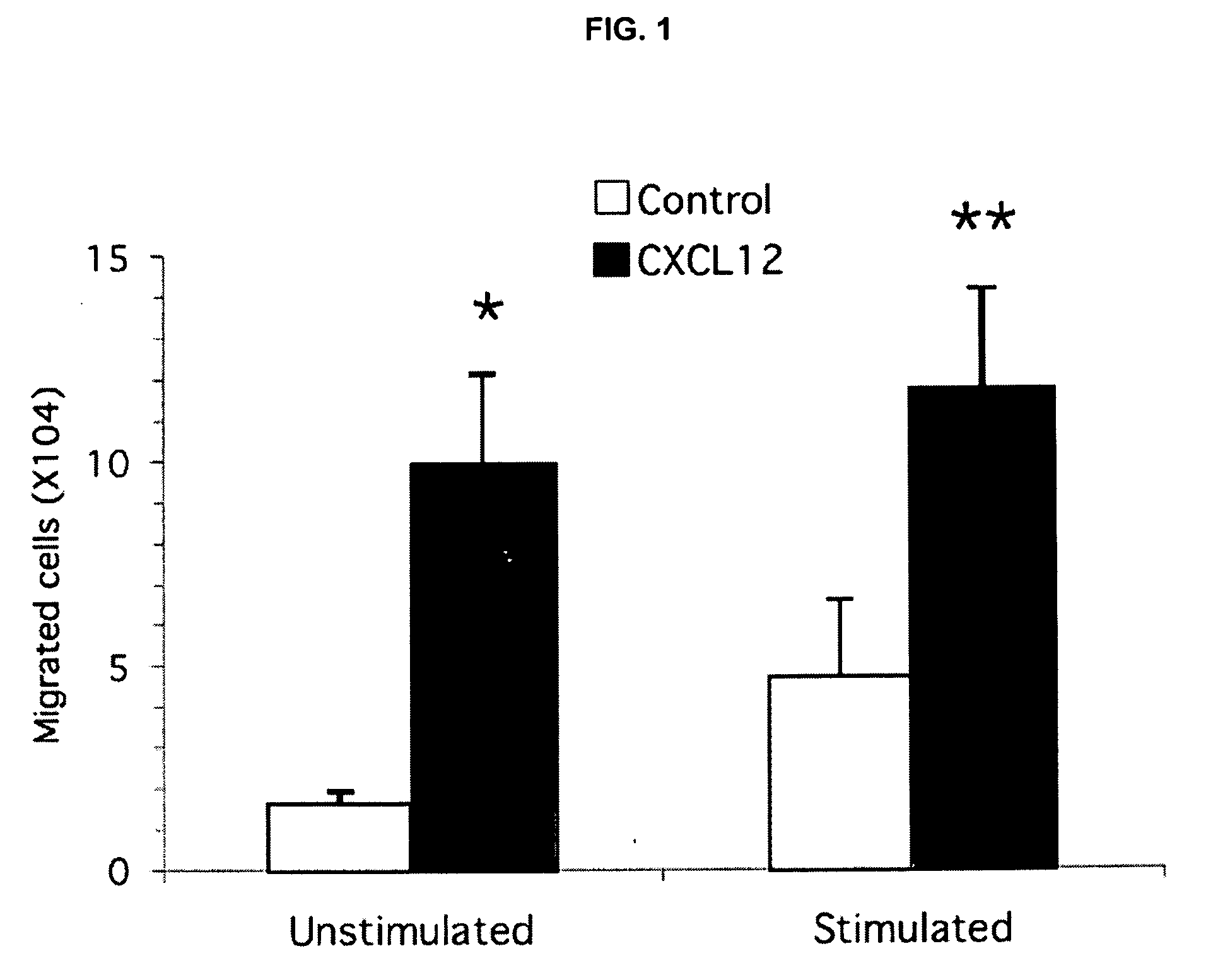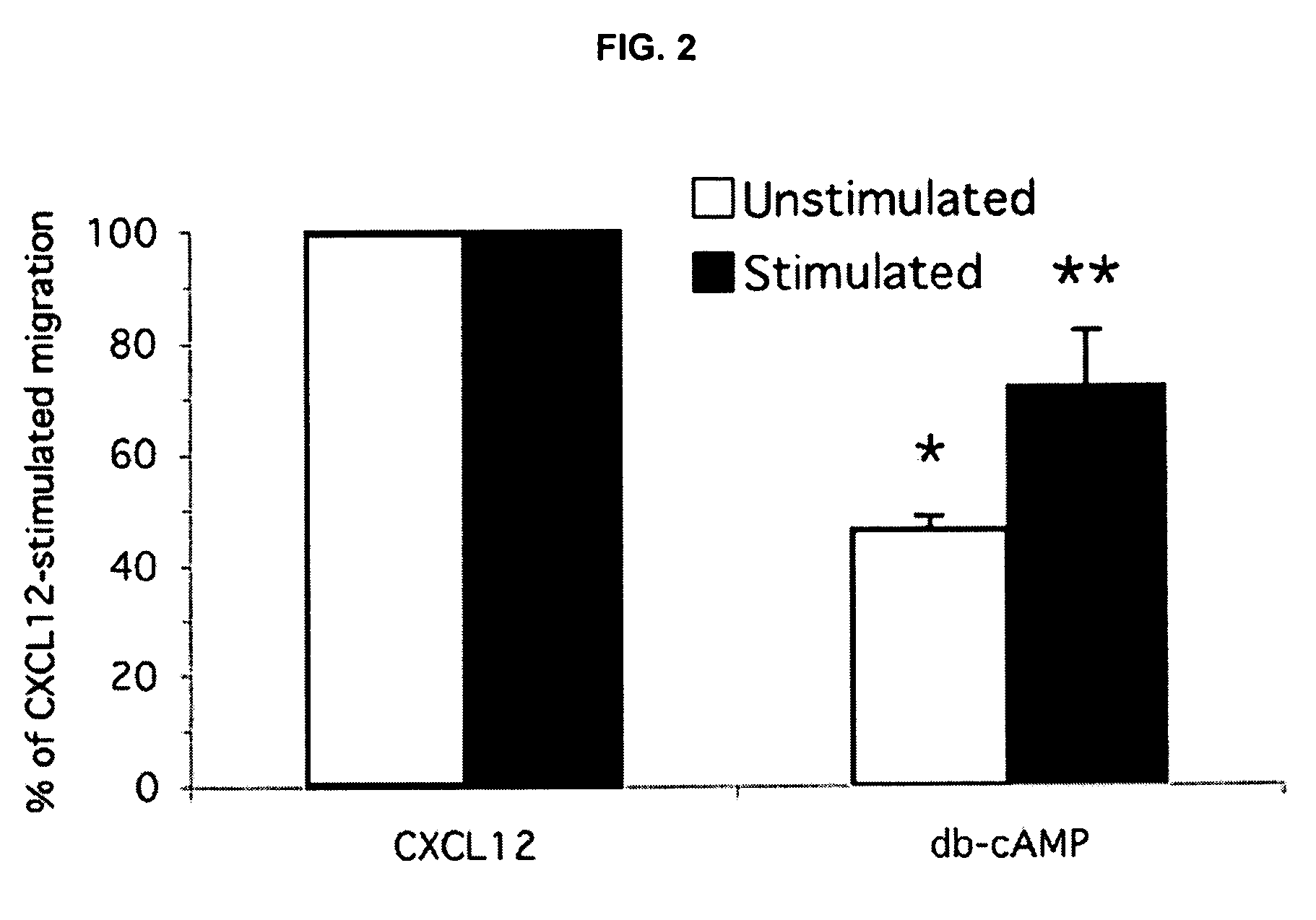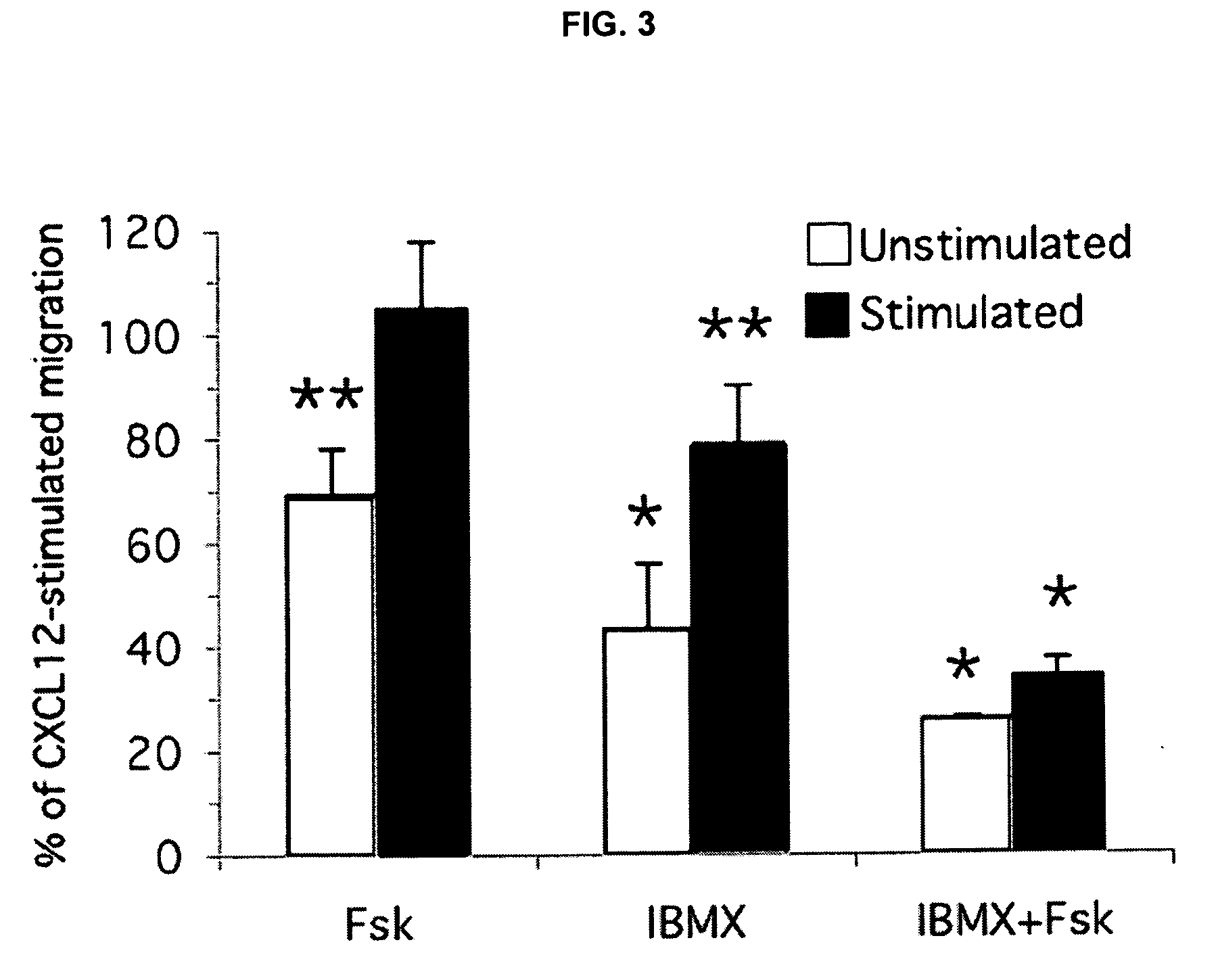Methods of treating inflammation
- Summary
- Abstract
- Description
- Claims
- Application Information
AI Technical Summary
Benefits of technology
Problems solved by technology
Method used
Image
Examples
example 1
Materials and Methods
[0125]Materials. Recombinant mouse CXCL12 was obtained from R&D Systems (Minneapolis, Minn.), forskolin and RpcAMPS from Biomol (Plymouth Meeting, Pa.), and 3-isobutyl-1-methylxanthine (IBMX), dipyridamole, Con A, dibutyryl cAMP and adenosine deaminase type X from Sigma-Aldrich (St. Louis, Mo.). The PDE3 inhibitor motapizone, the PDE4 inhibitor piclamilast and a PDE7-selective inhibitor were supplied by colleagues.
[0126]Isolation of murine splenocytes. Splenocytes were isolated from 6-8 week old C57BL / 6 mice obtained from Jackson Laboratories (Bar Harbor, Me.). Spleens were removed and a single-cell suspension prepared using 40 μm cell strainers (Fisher Scientific). Cells were washed with RPMI 1640 medium supplemented with 5% fetal bovine serum, 2 mM L-glutamine, 100 U / ml penicillin and 100 mg / ml streptomycin (all from GIBCO). Red blood cells were lysed using standard lysis buffer (0.15M NH4Cl, 10 mM KHCO3, 0.1 mM EDTA PH 7.4). Cells were then washed and used in...
example 2
CXCL12 Induces Migration of Murine Splenocytes
[0144]The studies provided herein demonstrated that cAMP modulation of T cell migration indicates different intracellular regulation between stimulated and unstimulated cells. Directed migration of T cells to specific tissues is believed to play an important role in lesion formation associated with inflammatory diseases. To investigate cAMP signaling and PDE control of T cell migration, broad modulators of the synthetic and degradative enzymes that regulate cAMP were used in chemotaxis assays. Previous studies had shown that chemotaxis of human T cells to several stimuli, including CXCL12, could be inhibited by agents known to stimulate the cAMP signaling pathway. T cells used in these previous chemotaxis studies were, however, quiescent, unstimulated cells. Inasmuch as it is now well accepted that pro-inflammatory T cell populations that participate in transendothelial migration and enter sites of inflammation represent activated effect...
example 3
Effect of cAMP Analogue Adenylyl Cyclase Activator and PDE Inhibitors on CXCL12 Induced Splenocyte Chemotaxis
[0147]The cell permeable cAMP analogue, dibutyryl cAMP (500 μM) significantly inhibited CXCL12-induced migration of both unstimulated and Con A-stimulated splenocytes by 54% and 29% respectively (FIG. 2). Splenocytes isolated from mice were assayed for migration in response to CXCL12 (250 ng / ml), either directly (unstimulated) or following 48 hr of incubation with 3 μg / ml Con A (stimulated), as described in Methods. To test for effects of dibutyryl cAMP, cells were pretreated with dibutyryl cAMP (500 μM) for 45-60 min prior to beginning the chemotaxis assay, and the assays were conducted with dibutyryl cAMP (db-cAMP) present (500 μM) in both the upper and lower chambers of the transwell plates. Data plotted are derived from a single experiment performed in triplicate. *p<0.001; **p<0.02.
[0148]In contrast, the responses of these two cell populations, the unstimulated and Con A...
PUM
| Property | Measurement | Unit |
|---|---|---|
| Molar density | aaaaa | aaaaa |
| Molar density | aaaaa | aaaaa |
| Molar density | aaaaa | aaaaa |
Abstract
Description
Claims
Application Information
 Login to View More
Login to View More - R&D
- Intellectual Property
- Life Sciences
- Materials
- Tech Scout
- Unparalleled Data Quality
- Higher Quality Content
- 60% Fewer Hallucinations
Browse by: Latest US Patents, China's latest patents, Technical Efficacy Thesaurus, Application Domain, Technology Topic, Popular Technical Reports.
© 2025 PatSnap. All rights reserved.Legal|Privacy policy|Modern Slavery Act Transparency Statement|Sitemap|About US| Contact US: help@patsnap.com



